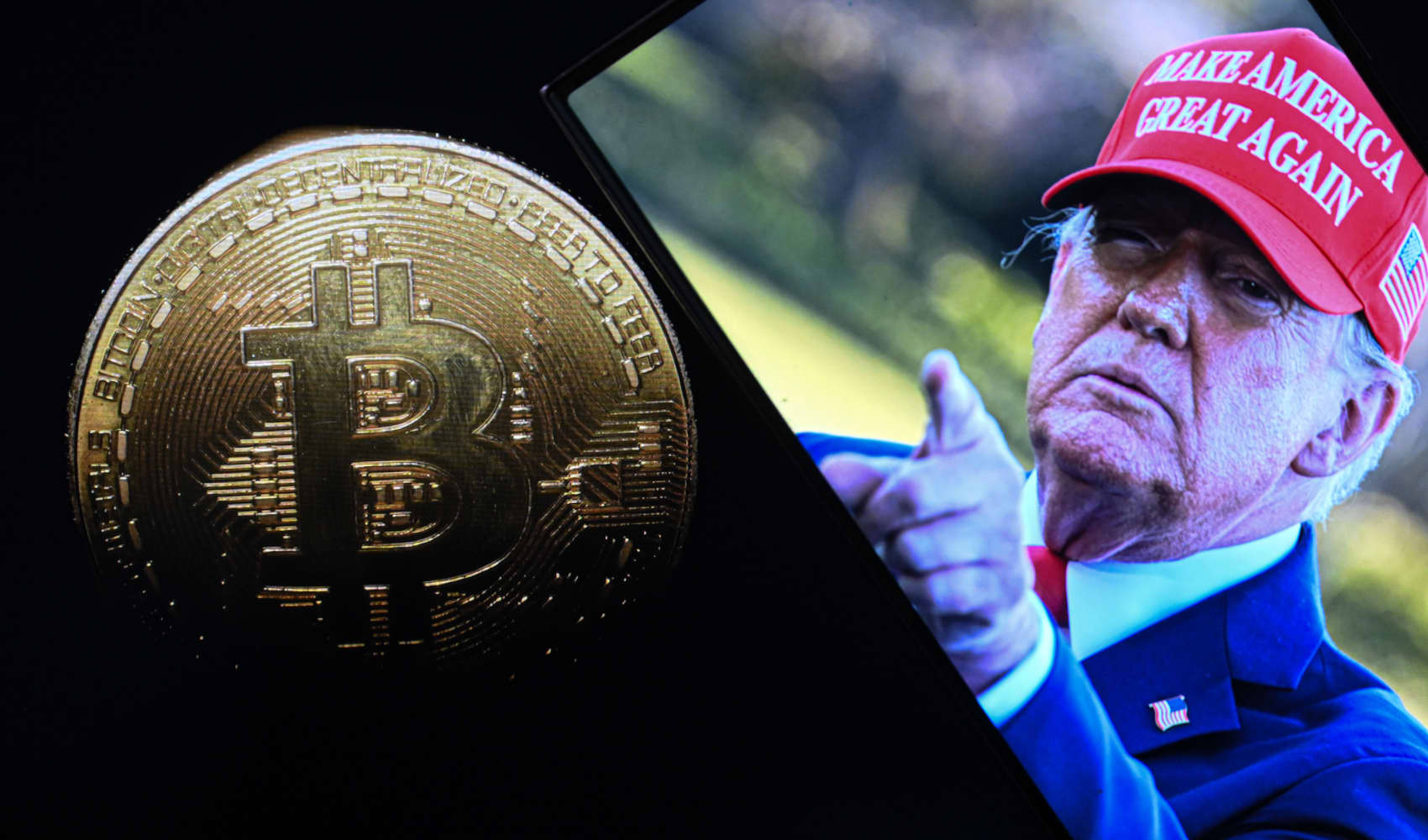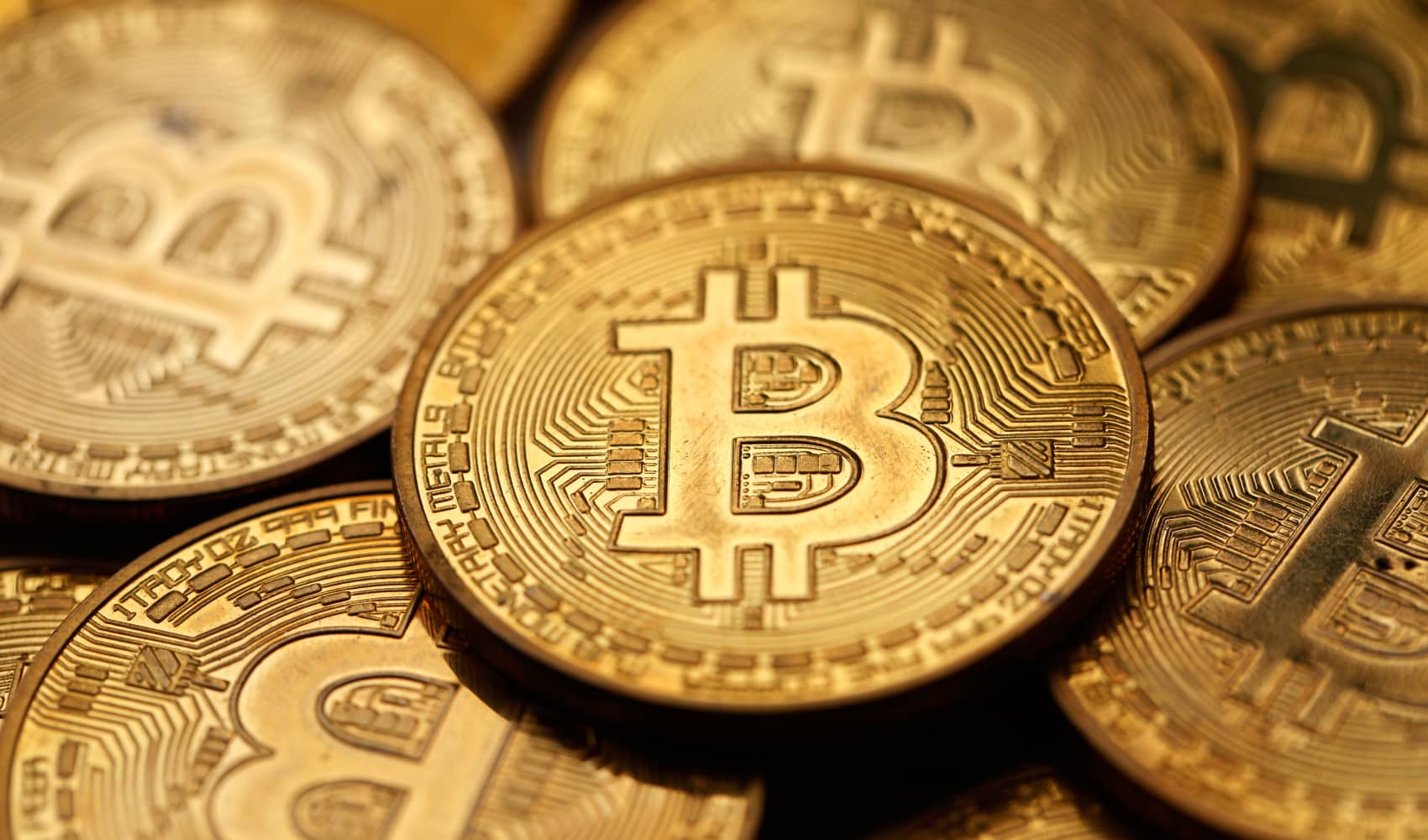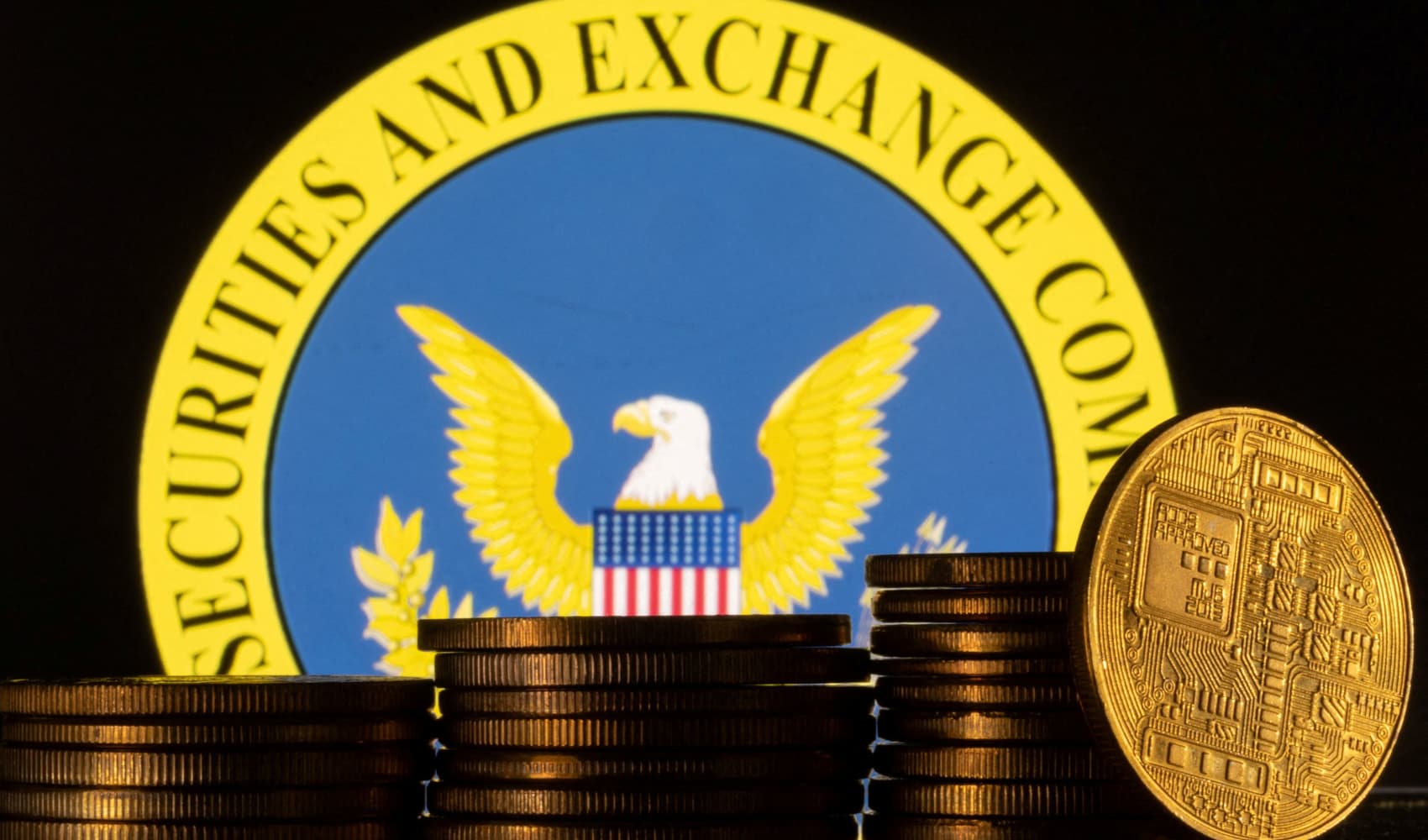Bitcoin Surges Past $100K: Is the Crypto Boom Back?
Bitcoin Blasts Past $100,000: Is This the Start of a New Crypto Era?
Introduction: The King is Back!
Hold on to your hats, folks! Bitcoin is back in the six-figure club, smashing through the $100,000 barrier for the first time since February. Remember those gloomy days when crypto seemed to be in the doldrums? Well, dust yourself off, because things are looking brighter than a laser-eyed Bitcoin meme right now. But what sparked this monumental move, and is it sustainable? Let's dive into the details.
The Spark: Trump's Trade Deal Tease
It all started with a tweet, as many things do these days. President Trump hinted at a potential trade agreement between the U.S. and the United Kingdom, sending ripples of optimism through the markets. This initial spark ignited a chain reaction that propelled Bitcoin upwards. But why Bitcoin, specifically?
The Power of Positive News
Positive news in the economic sphere often acts like a rising tide, lifting all boats. Trump's announcement, even in its early stages, signaled potential economic growth and stability. This, in turn, encourages investors to take on more risk, including allocating funds to cryptocurrencies like Bitcoin.
The Climb: Bitcoin's Ascent to $100,000
Overnight, Bitcoin began its climb, steadily gaining momentum. As Trump revealed a broader outline of the trade agreement, the cryptocurrency officially broke through the $100,000 mark, hitting a high of $101,679.85 according to Coin Metrics. Stocks also joined the party, rallying alongside Bitcoin.
A Collective Cheer from the Crypto Community
The $100,000 threshold is more than just a number; it's a psychological barrier. Breaking through it sent a wave of excitement through the crypto community, validating the long-term belief in Bitcoin's potential.
Expert Insights: "Bouncebackability" is the Word
Antoni Trenchev, co-founder of crypto exchange Nexo, aptly described Bitcoin's resurgence as "bouncebackability." In his words, Bitcoin has "reaffirmed its status as the ultimate bouncebackability asset as the prospects for U.S. trade deals brighten." Isn't that the perfect way to describe Bitcoin's resilience?
Why Now? Market Uncertainty and Bitcoin's Appeal
The recent market uncertainty has played a significant role in Bitcoin's resurgence. Investors are increasingly questioning the traditional safe-haven status of the U.S. dollar, driving them to seek alternative stores of value. Is Bitcoin becoming the new gold?
Bitcoin as a Hedge Against Inflation
With concerns about inflation rising, investors are looking for assets that can maintain their value over time. Bitcoin, with its limited supply, is often seen as a hedge against inflation, making it an attractive option in uncertain economic times.
Trump's Administration and Bitcoin's Future
While the Trump administration's policies on cryptocurrency are still evolving, this recent event suggests a potentially positive correlation between trade deals and Bitcoin's performance. Could this be a sign of a more crypto-friendly future under Trump?
Navigating Regulatory Uncertainty
Regulatory uncertainty remains a key challenge for the cryptocurrency industry. Clear and consistent regulations are needed to foster innovation and attract institutional investment. How will the Trump administration approach this issue in the future?
Beyond the Headlines: What Does This Mean for Investors?
This milestone raises important questions for investors. Should you buy now, or wait for a dip? Is Bitcoin still a viable long-term investment? Let's break down some key considerations.
Risk Management is Key
Investing in Bitcoin, like any investment, involves risk. Never invest more than you can afford to lose. Diversify your portfolio and conduct thorough research before making any investment decisions.
The Long-Term Perspective: Bitcoin's Potential
While short-term price fluctuations are inevitable, Bitcoin's long-term potential remains significant. As the adoption of cryptocurrency continues to grow, Bitcoin could play an increasingly important role in the global financial system. Can you imagine a future where Bitcoin is the standard currency?
Decentralization and Financial Freedom
Bitcoin's decentralized nature offers individuals greater control over their finances. This can be particularly appealing in countries with unstable political or economic systems. This inherent freedom attracts a wide array of people.
Altcoins and the Broader Crypto Market
Bitcoin's performance often influences the broader cryptocurrency market. When Bitcoin rises, many altcoins tend to follow suit. However, it's important to remember that altcoins carry their own unique risks and opportunities.
Due Diligence is Crucial
Before investing in any altcoin, it's essential to conduct thorough research. Understand the technology, the team behind the project, and the potential use cases. Don't get caught up in hype; make informed decisions.
The Future of Bitcoin: What's Next?
Predicting the future of Bitcoin is a fool's errand, but we can look at current trends and potential catalysts. Increased institutional adoption, further regulatory clarity, and continued innovation in the blockchain space could all contribute to Bitcoin's continued growth.
The Halving Effect
Bitcoin's halving events, which occur approximately every four years, reduce the rate at which new Bitcoins are created. Historically, these events have been followed by significant price increases. The next halving is coming up in 2028.
Conclusion: Bitcoin's Resilience and Future Potential
Bitcoin's recent surge above $100,000 is a testament to its resilience and enduring appeal. While market uncertainty and regulatory challenges remain, Bitcoin's potential as a store of value and a decentralized alternative to traditional financial systems is undeniable. This breakthrough reaffirms Bitcoin's place as a major player in the financial world. Keep a close eye on Bitcoin; the ride is far from over!
Frequently Asked Questions (FAQs)
-
Q: What caused Bitcoin to jump above $100,000?
A: A combination of factors, including President Trump's announcement of a potential trade deal between the U.S. and the United Kingdom and growing market uncertainty, contributed to Bitcoin's surge.
-
Q: Is it a good time to buy Bitcoin now?
A: It depends on your individual risk tolerance and investment goals. Bitcoin is a volatile asset, so it's essential to do your research and invest only what you can afford to lose.
-
Q: What is Bitcoin's halving, and how does it affect the price?
A: The halving is an event that occurs approximately every four years, reducing the rate at which new Bitcoins are created. Historically, halvings have been followed by price increases due to reduced supply.
-
Q: Is Bitcoin a safe haven asset?
A: While Bitcoin is often touted as a safe haven asset, its volatility suggests it's not a perfect substitute for traditional safe havens like gold or government bonds. Its status as a safe haven is still being debated.
-
Q: How is market uncertainty related to Bitcoin's price?
A: Market uncertainty, such as concerns about inflation or geopolitical instability, can drive investors to seek alternative stores of value like Bitcoin, potentially increasing demand and price.



